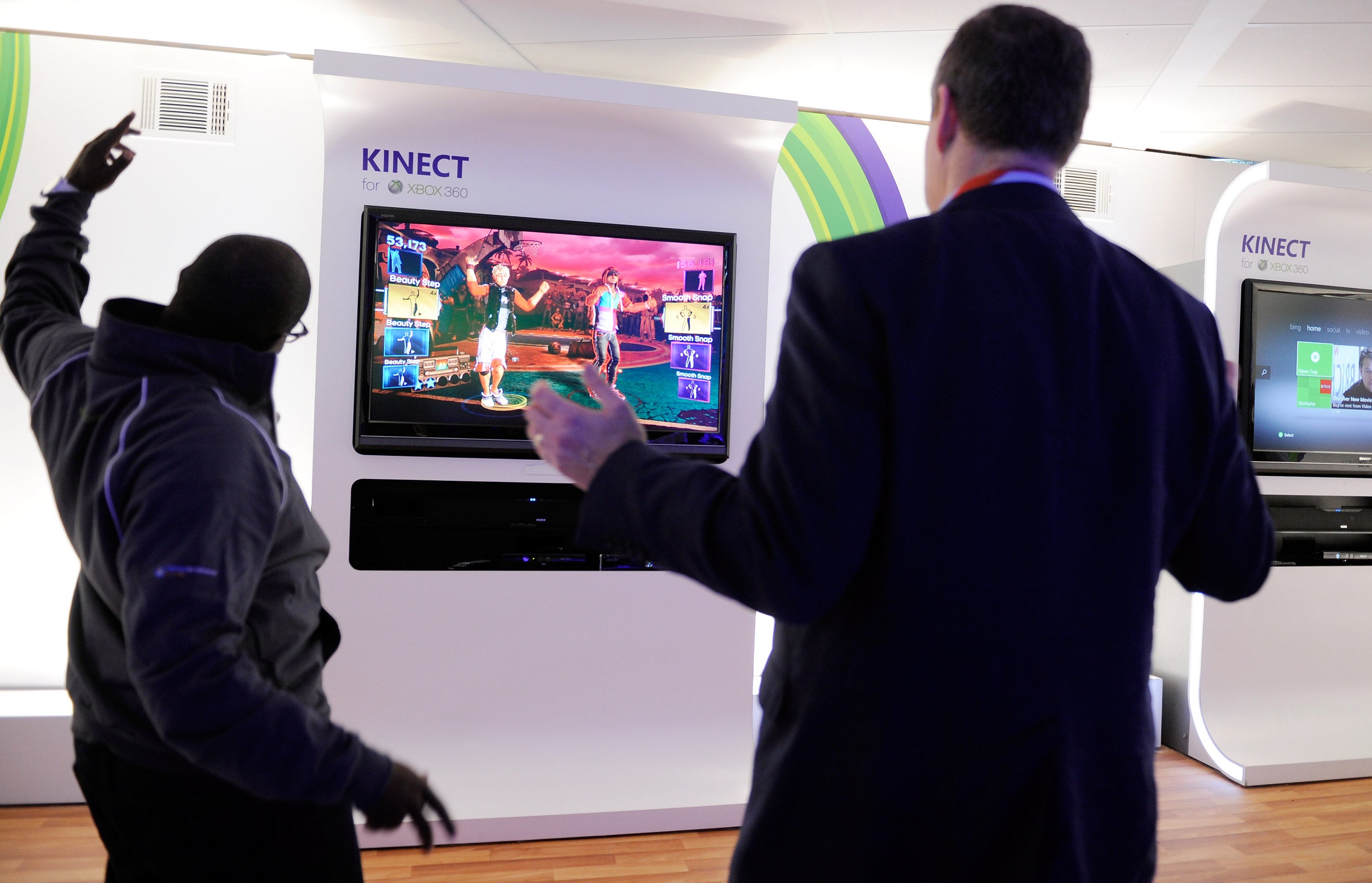Report: Apple closing $345m deal to buy Kinect manufacturer PrimeSense
Israeli-based PrimeSense created the technology behind Microsoft's Kinect motion sensing device, fuelling rumours of future Apple products

Your support helps us to tell the story
From reproductive rights to climate change to Big Tech, The Independent is on the ground when the story is developing. Whether it's investigating the financials of Elon Musk's pro-Trump PAC or producing our latest documentary, 'The A Word', which shines a light on the American women fighting for reproductive rights, we know how important it is to parse out the facts from the messaging.
At such a critical moment in US history, we need reporters on the ground. Your donation allows us to keep sending journalists to speak to both sides of the story.
The Independent is trusted by Americans across the entire political spectrum. And unlike many other quality news outlets, we choose not to lock Americans out of our reporting and analysis with paywalls. We believe quality journalism should be available to everyone, paid for by those who can afford it.
Your support makes all the difference.Apple are reportedly finalising a $345 million deal to buy PrimeSense, an Israeli firm that specialises in motion-tracking and was responsible for the technology behind the original Kinect peripheral for the Xbox 360.
Rumours of the acquisition began back in July but were dismissed by PrimeSense. Recent reports from Israeli financial news site Calcalist suggests that these rebuttals were simply political and that talks between the two companies are now “close” to complete.
PrimeSense describes its technology as giving digital devices “the gift of sight, enabling Natural Interaction between people and devices and between devices and their surroundings.” They also stress their products’ potential for “mass market commercial devices”.
In 2010 PrimeSense’s technology was used to create the Kinect, a motion sensing peripheral for Microsoft’s Xbox 360 that sold 8 million units in 60 days to become the "fastest selling consumer electronics device” according to Guinness World Records.
Although Microsoft have since engaged other companies to build the second iteration of the Kinect (which will ship with the Xbox One on 22 November) PrimeSense has continued to develop and miniaturize their technology.
Talks of an acquisition have fuelled rumours that PrimeSense’s technology might be incorporated into the company’s iPhones or iPads, just as the Californian phone-manufacturer’s purchase of Authentec in 2012 was followed by the introduction of fingerprint sensors in the iPhone 5s.
Another line of thought suggests that the motion sensing technology will be used to create a ‘full’ Apple TV; a product that moves beyond Apple's current TV device, which mainly works as a middleman between consumers' televisions and their streaming media.
These rumours are in part supported by a claim from Steve Jobs that was recorded in Walter Isaacson’s biography of the Apple founder. Jobs reportedly said that he had “cracked” the problem of user interfaces for TVs: “ No longer would users have to fiddle with complex remotes for DVD players and cable channels,” Isaacson reported in the 2011 book.
Although PrimeSense continues to refuse to comment on what they describe as “rumours or re-cycled rumours” Cacalist has a good track record in this area, previously reporting on the (correct) rumours that Israeli-based mapping company Waze was to be bought by Google.
Join our commenting forum
Join thought-provoking conversations, follow other Independent readers and see their replies
Comments